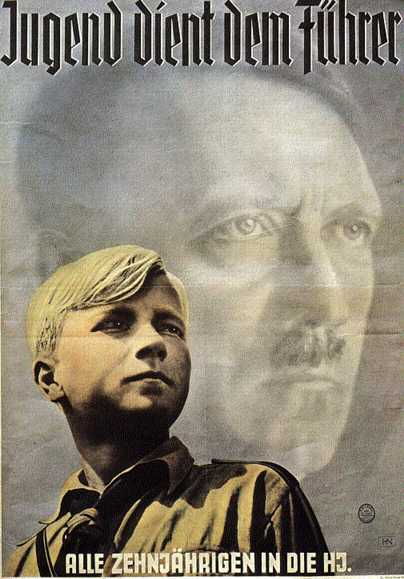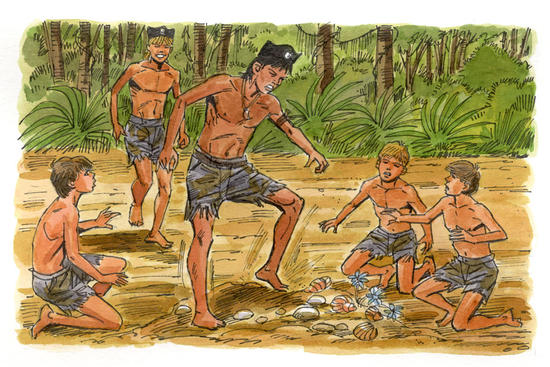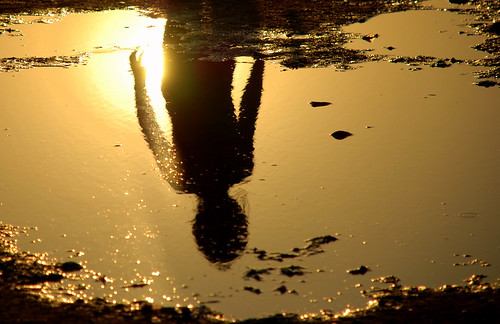

Left: The Coral Island by R.M. Ballatyne
Right: Lord of The Flies by William Golding
The Coral Island vs. Lord of the Flies
The Coral Island is a novel written in 1858 which depicts three British boys who get shipwrecked on an island with no one to rescue them. The boys adapt to the island, forming governmental structure and appointing certain jobs for each boy on the island. They come into contact with Polynesians and pirates. Despite all these obstacles, the boys still remain as British Gentlemen, not savages.
Golding's Lord of the Flies seems like a parody of The Coral Island. Golding mocks Ballatyne's use of British Gentlemen as the main characters. Using Ballatyne's charater as a basis, he creates characters which are complete opposites from the boys in The Coral Island. In Lord of the Flies, the boys do not act proper and attempt to recreate a government system. The boys become savages and kill each other. Golding's purpose of this parody is to show the darkness of human nature.
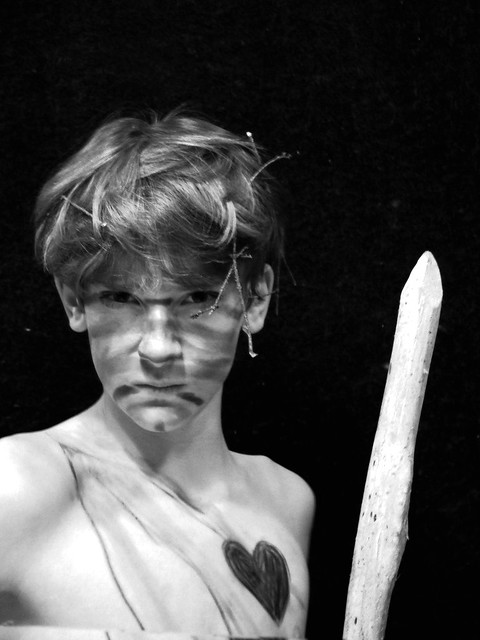
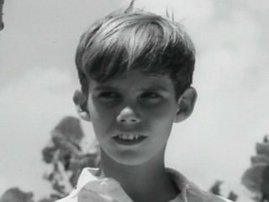
Jack Lord of the Flies VS Jack The Coral Island

Both novels have a main character that is named Jack. In The Coral Island, Jack is described as a tall and fair boy with high intellect. Jack represents himself in a friendly manner. He plays an important role in ensuring that Ralph and Peterkin are alive. In Lord of the Flies, Jack Merridew has a huge contrast as compared to Jack Martin from The Coral Island. Even though he is one of the oldest on the island, Jack does not have the basic qualities to be a leader. Jack believes that he should be chief as he is the head chorister in the choir, which is based on his singing ability and not his ability to lead. He uses violence to get his way which leads to his savage behaviour.
Ralph The Coral Island vs. Ralph Lord of The Flies

Both novels also have a main character named Ralph. In The Coral Island, Ralph Rover is described as a quiet, handsome, and young British boy who was raised with etiquette and good morals, Ralph acts politely towards Peterkin and Jack. Despite being few years younger than Jack, Ralph handles situations in a mature manner. In Lord of the Flies, Ralph is an athletic and hard working boy. Ralph starts off being childish in the beginning of the novel. He calls Piggy "Piggy" and makes fun of him despite Piggy not telling him to. He sees Piggy as an outsider and tries his best to avoid Piggy. But as the novel progresses, he governs the boys on the island with seriousness. He begins to treat Piggy as part of their group. He provides great leadership and civilization to the island and the boys that now live there, making sure that their needs (such as shelters) are met. Unlike Jack Merridew, Ralph does not resort to violence to get things done and still remains civilized throughout the novel.
